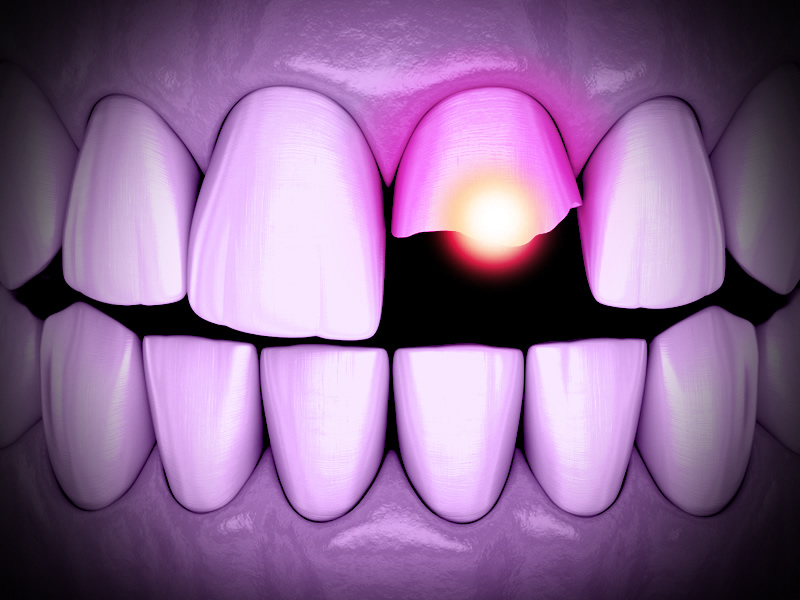24 hours a day, 7 days a week
Do you have a broken tooth?
See our emergency dentist and get the problem resolved fast
Treatment for a broken tooth in Edgware, North West London
If you are looking for urgent, affordable treatment for a broken tooth from a trusted emergency dentist near you in Edgware, North London, we can help.


Emergency appointments from £45
Choose our emergency dentistry and benefit from:
- 24 hours a day, 7 days a week emergency availability
- Urgent cases seen SAME DAY
- Skilled team of emergency dentists
- Treatment at the same appointment where possible
- No new patient registration required
Meet your emergency dental expert
Dr Ali El-Kabengi is our principal emergency dentist. He has a Master’s Degree in Dental Surgery from the internationally renowned Leeds School of Dentistry and is experienced in treating emergency cases.


DR. ALI EL-KABENGI
Principal Dentist | MCHD BCHD BSc (Leeds) | GDC No. 270807
Are you suffering from a broken tooth?
Emergency treatment for broken teeth
Although teeth are generally strong and durable, they can break, become damaged or knocked out as a result of an accident or trauma. When this happens it is important to visit an emergency dentist as quickly as possible to address the problem and prevent further damage.
If you find fragments of your broken tooth, it is important to look after them. Place them into a clean container then cover with milk or saliva. Bring the fragments with you to your emergency dentist appointment.
What causes broken teeth?
Accidents happen and there are many ways that teeth can become damaged. Some of the most common reasons for teeth breaking are:
- Eating hard foods
- Playing contact sports
- A trip or fall
- Cycling or horse riding accident
Teeth can also break for reasons other than an accident, such as severe teeth grinding or as a result of the presence of large fillings from previous damage. Ageing, and the resulting wear and tear over the years, can also be a factor in teeth becoming more susceptible to breaking.
How we can repair broken teeth
The emergency dentist will first talk to you about how your tooth became broken. They will then examine your mouth, and take any necessary x-rays. Depending on the type of tooth and the level of damage, your dentist will recommend the most suitable treatment.
Whatever the work required, the dentist will endeavour to give you a long-lasting and aesthetically pleasing result. Broken teeth can be repaired using a number of treatments, including composite bonding, crowns or veneers. The dentist can also reposition teeth if they have moved, or reinsert them if they have fallen/been knocked out.
For the more significant treatments, you will need to come back to the practice for follow-up appointments.
If the break in your tooth has caused damage to the dental pulp inside it, you may need root canal treatment to prevent the need for an extraction. During this treatment, the affected soft tissue will be removed and replaced with a special filling material before being safely sealed.
Accidents and broken teeth FAQs
Even if you feel you can manage with your broken tooth, it is important to see an emergency dentist as soon as possible. This is because even small breaks can allow bacteria in, and this, in turn, can lead to infection. If you see a dentist straight away, it is more likely that your tooth will be able to be saved.
Sometimes damage to teeth isn’t immediately apparent. You are likely to notice the change though, and there are a number of symptoms to keep an eye out for. You may feel a sharp area in your mouth, or a hole that wasn’t there previously.
Other signs of a broken tooth are:
- Pain from either hot or cold
- Sharp pain when eating
- A swollen area of your face
- Bleeding or discharge near your gum
- Pain from hot or cold
- Sharp pain when eating
- A swollen face
- Bleeding or discharge near your gum.
Sometimes a physical trauma, such as an accident or sport injury, can cause damage that doesn’t remove a portion of your tooth. This usually takes the form of a fracture or crack, which can weaken the tooth and make it more vulnerable to breaking in the future. If you think you may have experienced this type of injury, it is important to visit the dentist for them to assess the situation.
Although it is difficult to protect your teeth from unexpected accidents or damage from eating, there are precautions you can take in some circumstances. For example, if you are taking part in high impact sports, we recommend you wear a suitable mouthguard for protection.
By far the best way to help protect your teeth is to make sure you undertake an effective home oral hygiene routine, as well as regular visits to your dental hygienist. This will keep your teeth strong and healthy, maximising their chances of withstanding trauma if and when it does occur.
